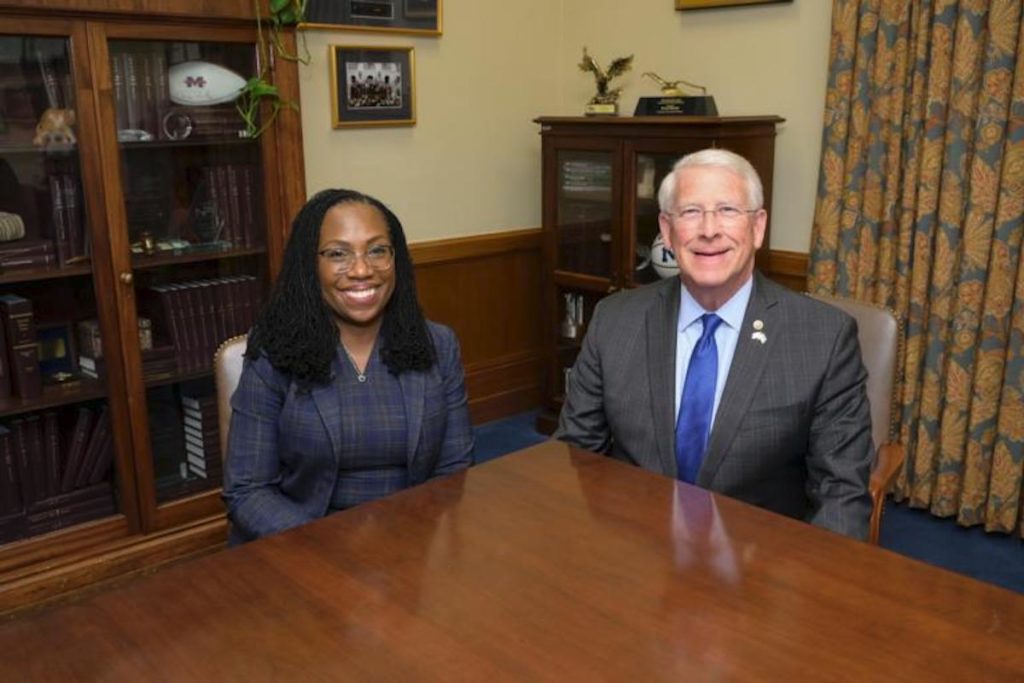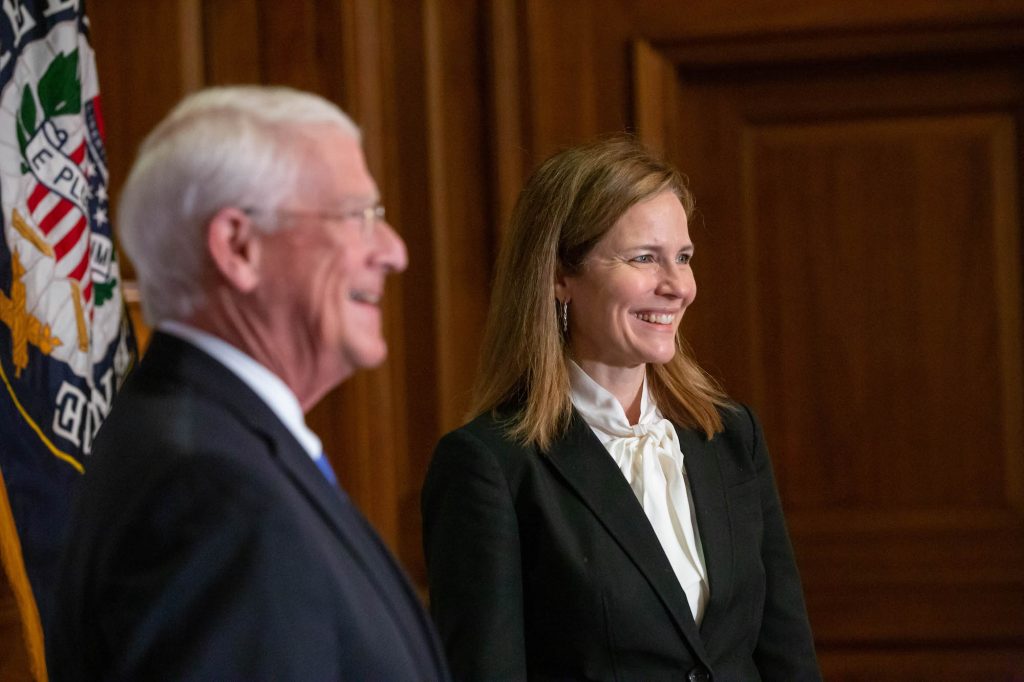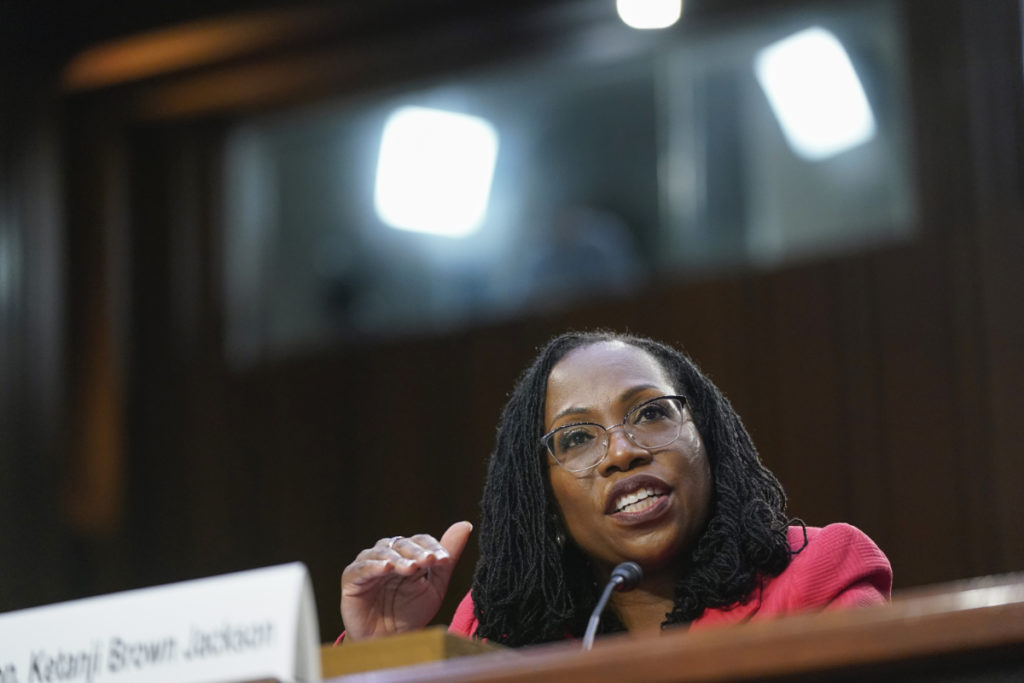Mississippi’s two U.S. senators, Republicans Cindy Hyde-Smith and Roger Wicker, say they will not vote to confirm Judge Ketanji Brown Jackson to the U.S. Supreme Court. If confirmed, she will be the first Black woman to serve on the nation’s high court.
“I cannot in good conscience support the confirmation of Judge Jackson,” Hyde-Smith, who met with Jackson in her office last week, said in a statement Monday. “… Judge Jackson’s record indicates a readiness to legislate from the bench at times in a manner that risks some of the basic freedoms that are at the core of our Constitution. Such activism, for example, has threatened free speech rights and other individual American liberties.”
Hyde-Smith did not name any specific instances in which Jackson’s record concerned her. During confirmation hearings last month, the nominee said that speech freedoms “undergird our democracy.”
“Judge Jackson may be confirmed to the Supreme Court, but not with my support,” Hyde-Smith said in her statement. “As she assumes her historic role on the Supreme Court, I will pray she commits to a fair and impartial administration of justice for all Americans.”
Wicker also announced his vote against the nominee on Monday, saying that he had a “cordial” meeting with her in his office the prior week, but that “she did not alleviate my concerns that she has a far-left judicial philosophy and would legislate from the bench.”
Wicker Pre-Rejected Black Woman for Court
Even before her nomination was announced, though, Wicker told SuperTalk Mississippi radio host Paul Gallo that he did not plan to support President Joe Biden’s nominee, saying that any Black woman the president chose would be a “beneficiary” of an affirmative action “quota.” Biden pledged to appoint a Black woman to the U.S. Supreme Court during his 2020 campaign.

Wicker cited fears this week that Jackson “would restrict religious freedom when it comes to same-sex marriage.” In Mississippi, state lawmakers passed a law in 2016 that protects the right of some business owners to discriminate against LGBTQ people so long as they cite “sincerely held religious beliefs or moral convictions.”
“She was also totally unable to define what a ‘woman’ is, a sign that she is likeminded with the far left on issues involving the transgender movement,” Wicker said in his statement.
During Jackson’s confirmation hearings, U.S. Sen. Marsha Blackburn, a Tennessee Republican who grew up in Laurel, Miss., said she was concerned about transgender women competing as athletes alongside cisgender women. Blackburn asked the nominee to define the word “woman.”
“I can’t,” Jackson said.
“You can’t?” Blackburn asked.
“Not in this context. I’m not a biologist,” Jackson replied, referring to the scientific complexities of gender and sex.
‘Thin Judicial Record’ Thicker Than Barrett’s
Wicker also claimed that he fears Jackson “has an unusually thin judicial record for someone being appointed to our nation’s high court,” saying that “in her brief time as an appellate judge, she has authored only two opinions, providing no insight into her thinking.”
But while Jackson only joined the U.S. Court of Appeals For The District of Columbia in June 2021, she has served as a federal judge for nine years, authoring nearly 600 opinions during her time as a district court judge from 2013 to 2021.

Justice Amy Coney Barrett, a Trump appointee whom Wicker supported, spent only three years as a federal judge before joining the U.S. Supreme Court in late 2020. Wicker said she was “exceptionally qualified to be our nation’s newest Supreme Court Justice” when he announced his support for Barrett in October 2020.
“Brief as it is, Judge Jackson’s record raises serious red flags,” Wicker said in his statement on Monday. “… In one instance, Judge Jackson ruled that House Democrats could force President Trump’s chief counsel to testify before congressional investigators. That ruling was promptly overturned. She also blocked the Department of Homeland Security from expanding deportation efforts, a ruling that was dismissed out of hand.”
Evading ‘Court Packing’ Question
The Mississippi Republican also cited the judge’s refusal to take a position on whether or not Congress should expand the size of the U.S. Supreme Court. During her confirmation hearings, Jackson explained her refusal to take a position by saying that “judges should not be speaking to political issues.”
“Significantly, she would not reject the idea of court packing,” Wicker said in his statement. “Left-wing groups have been pushing Congress and President Biden to add seats to the Supreme Court to guarantee favorable rulings, even though liberal Justices Stephen Breyer and the late Ruth Bader Ginsburg have openly opposed the idea. When asked directly about court packing, Judge Jackson dodged the question entirely.”

But during her confirmation hearings in October 2020, Barrett also evaded a question about court packing, noting that the size of the U.S. Supreme Court is “a question left open to Congress” and that she “couldn’t opine on it.” Neither Wicker nor Hyde-Smith cited her refusal to take a position on the issue as they voted to confirm her later that month.
Democratic leaders have said they have the votes to confirm Jackson, with all 50 Democrats in favor. Three Republican senators have also announced their support for Jackson: Susan Collins of Maine; Lisa Murkowski of Alaska; and Mitt Romney of Utah.
In a statement Monday, Murkwoski said her “support rests on Jackson’s qualifications, which no one questions,” her “demonstrated judicial independence” and “her demeanor and temperament.”
“It also rests on my rejection of the corrosive politicization of the review process for Supreme Court nominees, which, on both sides of the aisle, is growing worse and more detached from reality by the year,” the Alaska Republican said. “While I have not and will not agree with all of Judge Jackson’s decisions and opinions, her approach to cases is carefully considered and is generally well-reasoned.”









